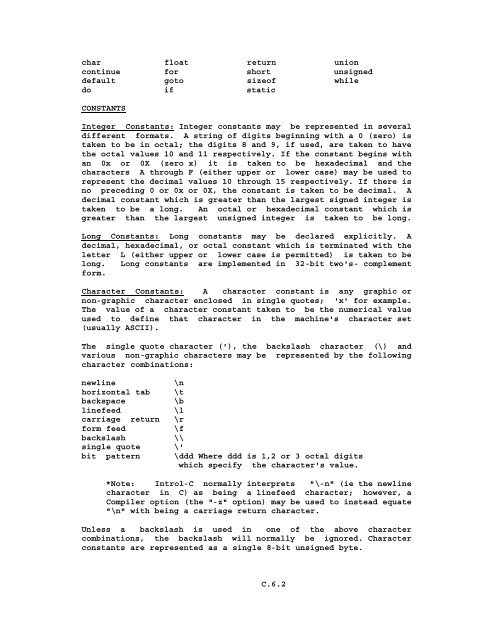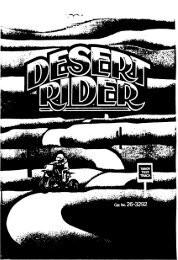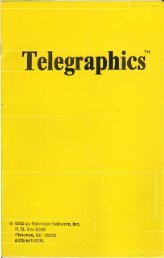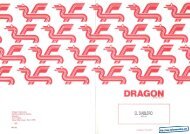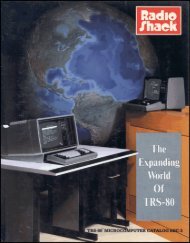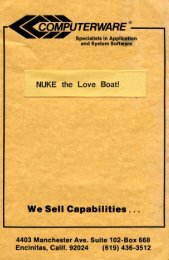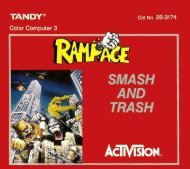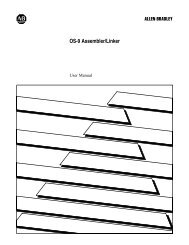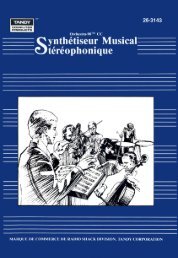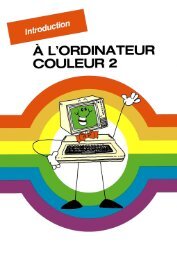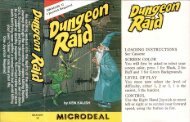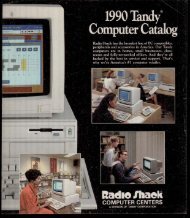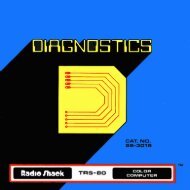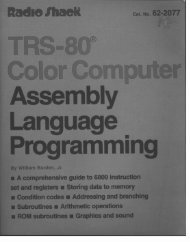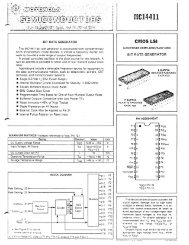INTROL-C COMPILER REFERENCE MANUAL
INTROL-C COMPILER REFERENCE MANUAL
INTROL-C COMPILER REFERENCE MANUAL
Create successful ePaper yourself
Turn your PDF publications into a flip-book with our unique Google optimized e-Paper software.
char float return union<br />
continue for short unsigned<br />
default goto sizeof while<br />
do if static<br />
CONSTANTS<br />
Integer Constants: Integer constants may be represented in several<br />
different formats. A string of digits beginning with a 0 (zero) is<br />
taken to be in octal; the digits 8 and 9, if used, are taken to have<br />
the octal values 10 and 11 respectively. If the constant begins with<br />
an 0x or 0X (zero x) it is taken to be hexadecimal and the<br />
characters A through F (either upper or lower case) may be used to<br />
represent the decimal values 10 through 15 respectively. If there is<br />
no preceding 0 or 0x or 0X, the constant is taken to be decimal. A<br />
decimal constant which is greater than the largest signed integer is<br />
taken to be a long. An octal or hexadecimal constant which is<br />
greater than the largest unsigned integer is taken to be long.<br />
Long Constants: Long constants may be declared explicitly. A<br />
decimal, hexadecimal, or octal constant which is terminated with the<br />
letter L (either upper or lower case is permitted) is taken to be<br />
long. Long constants are implemented in 32-bit two's- complement<br />
form.<br />
Character Constants: A character constant is any graphic or<br />
non-graphic character enclosed in single quotes; 'x' for example.<br />
The value of a character constant taken to be the numerical value<br />
used to define that character in the machine's character set<br />
(usually ASCII).<br />
The single quote character ('), the backslash character (\) and<br />
various non-graphic characters may be represented by the following<br />
character combinations:<br />
newline \n<br />
horizontal tab \t<br />
backspace \b<br />
linefeed \l<br />
carriage return \r<br />
form feed \f<br />
backslash \\<br />
single quote<br />
bit pattern<br />
\'<br />
\ddd Where ddd is 1,2 or 3 octal digits<br />
which specify the character's value.<br />
*Note: Introl-C normally interprets "\-n" (ie the newline<br />
character in C) as being a linefeed character; however, a<br />
Compiler option (the "-z" option) may be used to instead equate<br />
"\n" with being a carriage return character.<br />
Unless a backslash is used in one of the above character<br />
combinations, the backslash will normally be ignored. Character<br />
constants are represented as a single 8-bit unsigned byte.<br />
C.6.2


